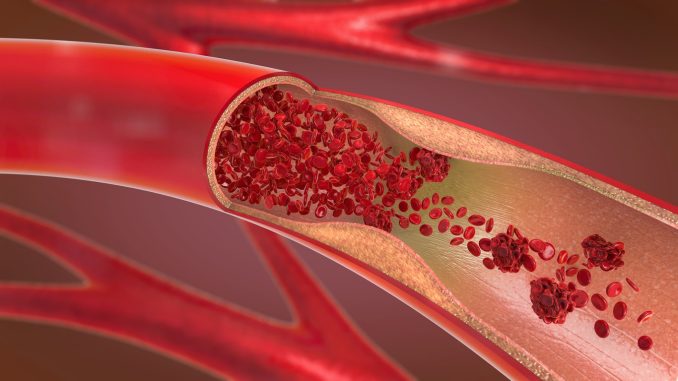
Our arteries play a crucial role in carrying oxygen-rich blood to our organs and tissues. However, if our arteries become blocked, it can lead to serious health problems such as heart attacks and strokes. In this article, we will discuss seven warning signs that you may have blocked arteries.
1. Chest Pain or Tightness
One of the most common warning signs of blocked arteries is chest pain or tightness, also known as angina. This pain or discomfort is typically caused by reduced blood flow to the heart, which can occur due to a buildup of plaque in the arteries. The pain may be accompanied by a feeling of pressure or squeezing in the chest, as well as shortness of breath, sweating, or nausea.
2. Leg Pain or Weakness
Blockages in the arteries of the legs can lead to pain or weakness in the legs, especially when walking or exercising. This condition is known as peripheral artery disease (PAD), and it can cause cramping, numbness, or aching in the legs or buttocks. In severe cases, PAD can lead to non-healing sores or infections in the feet or legs.
3. Erectile Dysfunction
While erectile dysfunction (ED) can have many causes, it can also be a sign of blocked arteries. This is because the arteries that supply blood to the penis can become blocked, leading to a reduced blood flow and difficulty achieving or maintaining an erection. If you are experiencing ED, it is important to speak with your healthcare provider to determine the underlying cause.
4. Fatigue or Weakness
If you are experiencing fatigue or weakness, it could be a sign of reduced blood flow to your organs and tissues due to blocked arteries. This is because your body is not receiving the necessary oxygen and nutrients it needs to function properly. Fatigue and weakness can occur in any part of the body, but they are particularly common in the legs.
5. Shortness of Breath
Shortness of breath is a common symptom of many health conditions, including blocked arteries. When the arteries that supply blood to the lungs become blocked, it can lead to shortness of breath, coughing, or wheezing. This condition is known as pulmonary artery disease (PAD), and it can be caused by smoking, high blood pressure, or high cholesterol.
6. High Blood Pressure
High blood pressure, or hypertension, can be a sign of blocked arteries. This is because the arteries become narrowed and less flexible due to the buildup of plaque, which can lead to increased blood pressure. High blood pressure can cause damage to the heart, kidneys, and other organs over time if left untreated.
7. Headaches
Headaches can be caused by many factors, including stress, dehydration, or lack of sleep. However, they can also be a sign of blocked arteries. When the arteries that supply blood to the brain become narrowed or blocked, it can lead to headaches, dizziness, or blurred vision. In severe cases, it can even cause a stroke.
If you are experiencing any of these warning signs, it is important to speak with your healthcare provider as soon as possible. They can perform diagnostic tests, such as a CT scan or ultrasound, to determine if you have blocked arteries. Depending on the severity of your condition, they may recommend lifestyle changes, medications, or surgical procedures to treat the blockages and prevent further damage to your health.
In conclusion, blocked arteries can have serious health consequences, but they can be managed with early detection and treatment. By being aware of these seven warning signs, you can take action to protect your health and prevent complications from blocked arteries. Remember to maintain a healthy lifestyle, including a balanced diet, regular exercise, and avoiding smoking, to reduce your risk of developing blocked arteries in the first place.
Share this:
- Click to share on Facebook (Opens in new window)
- Click to share on Twitter (Opens in new window)
- Click to share on WhatsApp (Opens in new window)
- Click to share on Reddit (Opens in new window)
- Click to share on Telegram (Opens in new window)
- Click to share on Pinterest (Opens in new window)
- Click to share on LinkedIn (Opens in new window)